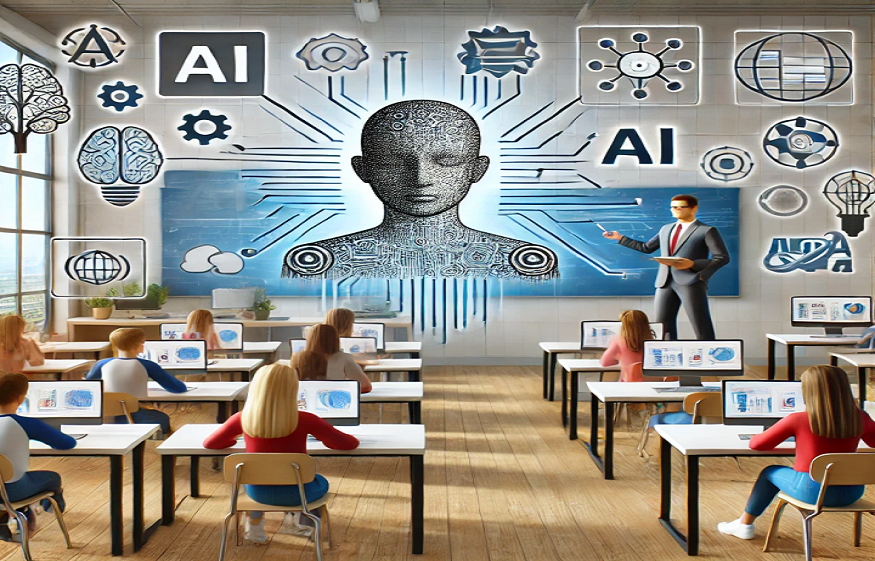Synopsis: Key Factors That Influence the AI Training Programs
The continuous progression of technology has necessitated that any economic activity be developed and conducted with the application of advanced technology tools, hence changing the very essence of industry. AI is one of the leading aspects driving change and innovation within contemporary systems and services such as healthcare, education, health, finance, and transportation. The rapidly evolving demand for AI technologies is also accompanied by the demand for professionals who can efficiently create, integrate, and manage such systems. As a result, the organization and framework of the AI diploma course in Pune become paramount.
However, these programs are affected by a number of fundamental considerations such as prerequisites, objectives, pedagogical approach, and expected results.
One of the major reasons affecting AI training programs is the curriculum. An effective curriculum must include the elementary concepts of machine learning, deep learning, natural language processing, computer vision, and neural networks. The coursework must capture real-world scenarios and applications. This duality helps ensure aspirants grasp the concepts of AI on an intellectual level as well as an actionable level. Additionally, owing to how fast-paced the advances in AI are, the curriculum always has to be revised to add new tools, algorithms, and even research directions.
Trainers with practical industry experience guiding AI projects provide critical perspectives that cannot be gained from a textbook alone. The application of theory to actual challenges deepens the learning experience. Also, cooperation with specialists and companies from the relevant fields can further improve the appropriateness of the training. When institutions partner with technological companies, they obtain new methods, instruments, and even case studies to be used in the program. Such partnerships may also provide access to information regarding learners about their industry. It also enhances their education and professional readiness.
The AI undertakings frequently take up a great deal of computation and require cloud systems. This includes AWS, Google Cloud, or Microsoft Azure. Adequate teaching provides aspirants with the opportunity to work on real-world projects. You also get access to ample datasets, along with sandbox spaces. These organizations are not equipped to address practical challenges and apply AI frameworks to workflows, resulting in an imbalanced curriculum and unprepared learners.
Flexibility and personalization are growing trends in AI training. Learners from different demographic groups have different prior knowledge. Some learners are complete newbies, and some are data analysts or software engineers. In both scenarios, they are trying to upskill. Well-designed AI diploma course in Pune captures this variation and provides modular or flexible learning options. This is to meet individual needs.
The training of Artificial Intelligence should correspond with well-defined career objectives and pathways. If the learners are keen on becoming machine learning engineers, data scientists, AI researchers, or even domain-specific analysts, the program must steer them towards relevant skills and job functions. Learning, preparation for resumes, career counseling, portfolios, interviews, and other similar works bridge the gap between employment and learning. The learners are attracted more to programs with placement assistance.
Frequent testing using quizzes, coding exercises, class projects, and capstone projects helps learners gauge comprehension and skill acquisition. Feedback enables learners to improve. Certifications through well-known organizations or universities add value to a learner’s skillset and enhance employability. Skills beyond the field must be integrated into AI training, including soft skills and multidisciplinary approaches. AI experts frequently participate in cross-functional projects, mandating teamwork, communication, and problem-solving skills.
Learners often miss the ability to communicate complex AI concepts to non-technical stakeholders. This training integrates responsible AI concepts, including bias, data privacy, and social impact. enables learners to develop professionally and become innovative leaders committed.
Support structures, community involvement, collaboration, and mentorship have become powerful tools. Institutions enable professional networking via webinars, alumni groups, hackathons, and academic meetups. The learners can extend professional and collaborative horizons. Such ecosystems permit learners to remain engaged even after training cessation.
The instructional AI systems affect hiring, legal decisions, and many other areas. The institutions must instill a sense of responsibility in learners. The program should talk about algorithmic bias, discrimination, fairness, accountability, and transparency. Learners must be prepared to build powerful systems. However, it should also ensure that these systems are equitable, socially responsible, and aligned with human values.
Conclusions
A multifaceted collection of factors comes together to impact AI training programs. A successful program will always find a middle ground between theoretical and practical hands-on learning, ethics, and contemporary societal issues. These programs are also personalized, adaptive, flexible, with strong ties to industry. It provides robust learner support. With unprecedented growth in AI, the focus should be on creating comprehensive and adaptive training programs that develop a capable and responsible workforce to harness the potential AI presents



